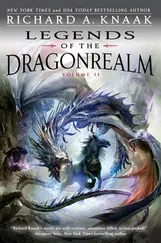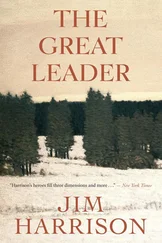Jim Harrison - Legends of the Fall
Здесь есть возможность читать онлайн «Jim Harrison - Legends of the Fall» весь текст электронной книги совершенно бесплатно (целиком полную версию без сокращений). В некоторых случаях можно слушать аудио, скачать через торрент в формате fb2 и присутствует краткое содержание. Жанр: Классическая проза, на английском языке. Описание произведения, (предисловие) а так же отзывы посетителей доступны на портале библиотеки ЛибКат.
- Название:Legends of the Fall
- Автор:
- Жанр:
- Год:неизвестен
- ISBN:нет данных
- Рейтинг книги:5 / 5. Голосов: 1
-
Избранное:Добавить в избранное
- Отзывы:
-
Ваша оценка:
- 100
- 1
- 2
- 3
- 4
- 5
Legends of the Fall: краткое содержание, описание и аннотация
Предлагаем к чтению аннотацию, описание, краткое содержание или предисловие (зависит от того, что написал сам автор книги «Legends of the Fall»). Если вы не нашли необходимую информацию о книге — напишите в комментариях, мы постараемся отыскать её.
Legends of the Fall — читать онлайн бесплатно полную книгу (весь текст) целиком
Ниже представлен текст книги, разбитый по страницам. Система сохранения места последней прочитанной страницы, позволяет с удобством читать онлайн бесплатно книгу «Legends of the Fall», без необходимости каждый раз заново искать на чём Вы остановились. Поставьте закладку, и сможете в любой момент перейти на страницу, на которой закончили чтение.
Интервал:
Закладка:
It is still argued by old men in the area whether it was alcohol, jail or grief, or simply greed that made Tristan an outlaw: but this is only gossip to nurse the drinks of pensioners and interesting in that forty years later Tristan was still an object of fascination, somehow the last of the outlaws, rather than a gangster.
In fact after he found six-year-old Three up at the spring singing with One Stab, he was mute for a number of months, except with his children. He was mute in jail refusing all visitors, including Alfred who came to offer his condolences and those of Susannah in a letter. The Helena press covered the meeting under the heading "Senator Visits Bereaved Brother in Jail."
In fact, Alfred was hoping for some solace and intervention from Tristan. He had arrived at the ranch the day after the funeral and only a few hours after the Marshal accompanied Tristan to jail. Ludlow stayed in his room and would not see his eldest son. He sent Pet down into the parlor carrying his slate saying he could not talk to Alfred as long as he represented the U.S. Government and its base practices. Ludlow in fact had thought of Two as a daughter and had loved her as a daughter. Years before he had been delighted to teach her to read and write and was constantly to Pet's and Decker's dismay trying to spoil her with gifts. It was Ludlow who wrote Isabel and told her to bring from Boston the grandest and costliest wedding gown possible. Now when he rode out to the grave with One Stab in the flivver he felt far more than his seventy-five years thinking of another October when he sent the boys off to war, and then the beautiful October afternoon seven years before when Tristan and Two had been married in a grove of cottonwoods, the sun glistening off the white gown against the sere colors of autumn, faded grass and yellow aspens. Two deaths in fourteen years of loved ones are not all that uncommon except to the mourner who has lost all sense of common and uncommon and is buried in the thoughts of things left out and how it might have been.
Alfred returned to Washington spending a long train trip in a sleepless turmoil. As a political issue, Prohibition had been a senseless obscenity to him and had only served to promote the interests of the criminal element, all the more evident in the waning years of the Volstead Act. His father had always been a hero to him. And he liked to quote the elegant old frontiersman in speeches to the Senate though Ludlow, to be sure, had no such notions of himself. Popular ideas as basically silly as "cowboys" or "frontiersman" or the law of Prohibition itself came after the fact in self-congratulatory phases of history, when the energies turned toward labeling and social order.
But Alfred's problems were more profound in nature than politics and an alienated father. Susannah in fact was quite ill, had always been ill in a quiet nonobvious manner. And Washington, the social demands of being a senator's wife exacerbated her problems. Alfred had bought a country house and stables out in Maryland where they boarded many of his father-in-law's racehorses. She stayed there most of the time with twice-weekly visits from a professor of forensic psychiatry from Johns Hopkins, an old French Jew sworn to secrecy, as a mad wife has always been a political liability. In the blindness of his affection, Alfred had refused to admit the severity of the problem. One afternoon years before when they were being driven from Vallauris to Nice to take the boat home, Susannah insisted the driver stop and they walked off into a wooded hillside and made love. She had seemed terribly happy for weeks though there were intermittent fits of weeping. Despite this Alfred thought himself never so gloriously happy, but then Susannah had descended into her particular torment, refusing to leave the stateroom for the entire two-week trip back to New York. The country place and release from the immediate pressures of Washington seemed to help.
But in each of the nine years of their marriage there had been periods of what must be called insanity of varying degrees of severity. The psychiatrist hadn't been encouraging though in the past few years Susannah had been his most endearing patient. He had pushed her activity with the racing stable, understanding as he did that a preoccupation with animals tended to calm a patient, that the horses benignly seemed to draw the poison away at least temporarily.
The weeks that followed Alfred's return from Montana had been totally hellish. Susannah had reached the pinnacle of her manic phase where all things on earth had become too vivid to be borne up under: she could see a horse's heart through the skin, muscle and bone, and the moon was only a foot beyond the window; cut flowers in vases were dead and terrifying and certain paintings from France had to be turned to the wall; she claimed she lacked an imaginary child no matter how hard she tried to invent one and she used Tristan's refusal to answer her note of condolence as a lever to descend into depression.
In April Alfred came back west ostensibly to visit his constituency. He bought a large house in Helena, thinking that if Susannah began spending her summers in Montana it might help. Isabel would be there and Tristan and Pet might allow Susannah to help with Three and Samuel. As he drove into the muddy yard near Choteau his heart, always optimistic, lifted at his plan and at the beauty of the ranch.
Tristan and Decker were outside the shed building frames for packsaddles while Ludlow and One Stab watched smoking their pipes. When Alfred got out of his car Ludlow slipped through the fence and walked far out in the pasture with One Stab following. Tristan, Decker and Alfred watched Ludlow make his way around the melting drifts as if he intended to walk to the end of the world. Tears streaked down Alfred's cheeks and Tristan took his arm. Alfred asked for his forgiveness but Tristan was matter-of-fact and only said, "Forgive you for what, you didn't shoot my wife." Decker sat on a sawhorse and watched Tristan and Alfred walk into the pasture after the receding figures of Ludlow and One Stab. Decker's own sorrow owned a harder Nordic remorselessness. (He waited three years until he was at a cattle auction in Bozeman before he had the opportunity to shoot one of the Federal officers on the Bozeman to Livingston road the officer traveled every day. He sat on a rock up in the loblolly pines with a .270 on his lap, first shooting out a tire, and when the man got out of the car he shot him ten times with great satisfaction. The other Federal officer had been transferred east and Decker had to be satisfied with the one.)
Halfway into the pasture Alfred stopped and in a rush of words explained that Tristan must write Susannah and relieve her of her twisted guilt. Tristan nodded in sympathy for his brother. When they reached Ludlow, who was leaning exhausted against a boulder, One Stab walked away out of earshot. Tristan took his father's arm and asked him to forgive Alfred who was his son and not the government. Ludlow shivered in a chill and stared at Alfred with hard but watery eyes, nodding at Tristan and looking away. He was without his slate so he merely embraced Alfred and began his walk back home.
When Alfred left the next morning he felt airy and positive though it was raining. He had been forgiven and they had a fine evening with Tristan's children sitting on Alfred's lap as he told them stories of life in the great cities of the East. He paused on the way to the main road to let a large band of packhorses and mules pass driven by two hands he recognized, the negroid Cree and the huge Norwegian carpenter. He wondered idly why Tristan wanted so many pack animals.
By early May when it was sure that spring had solidly broke and that any mountain storms would be short and fitful, One Who Sees As A Bird came down from Fort Benton and led Tristan, Decker, the Norwegian and Cree from Choteau up past Valier and Cut Bank to Cardston in Alberta where they loaded fifty packhorses with four cases of whiskey each, cut back down past Shelby and Conrad to Great Falls where Tristan got rid of the whiskey for six thousand dollars. The large profit was due to the fact that the whiskey was first-rate Canadian blended, not cut into working-class rotgut, a practice of the more venal smugglers. The other factor in the large profit was the scarcity of roads in northern Montana making it a relatively easy area for police. One Who Sees As A Bird made it an assured run though his friend One Stab was sad that Tristan had insisted he stay home to take care of Ludlow and the ranch.
Читать дальшеИнтервал:
Закладка:
Похожие книги на «Legends of the Fall»
Представляем Вашему вниманию похожие книги на «Legends of the Fall» списком для выбора. Мы отобрали схожую по названию и смыслу литературу в надежде предоставить читателям больше вариантов отыскать новые, интересные, ещё непрочитанные произведения.
Обсуждение, отзывы о книге «Legends of the Fall» и просто собственные мнения читателей. Оставьте ваши комментарии, напишите, что Вы думаете о произведении, его смысле или главных героях. Укажите что конкретно понравилось, а что нет, и почему Вы так считаете.











